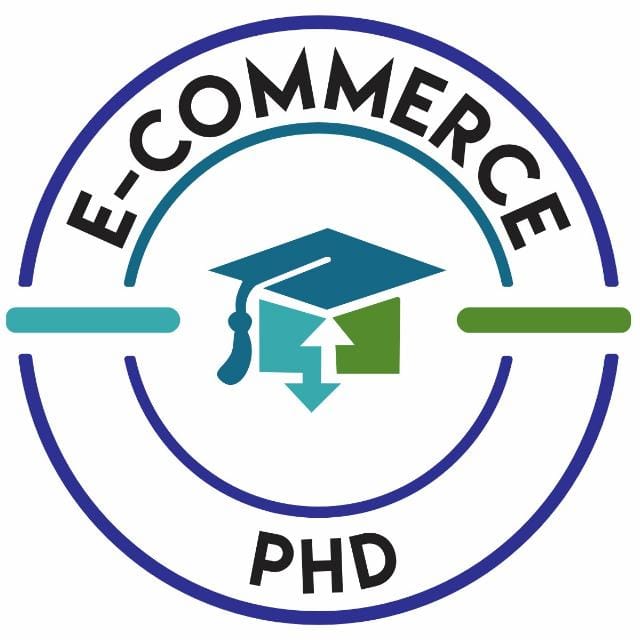Ph.D. in E-Commerce: Introduction, Admission, Registration, Eligibility, Duration, Fees, Syllabus 2024

Introduction:
The digital revolution has transformed the landscape of commerce, giving rise to E-Commerce as a critical domain. Pursuing a Ph.D. in E-Commerce offers a deep dive into the intricacies of online business, technology, and consumer behavior. This guide illuminates the path for aspiring scholars, offering insights into admission procedures, eligibility requirements, completion timelines, career pathways, and more.
Admission Process:
- Submit an application through the university's admissions portal, specifying the Ph.D. program in E-Commerce.
- Provide academic transcripts, letters of recommendation, and a statement of purpose highlighting research interests in E-Commerce.
- Demonstrate proficiency in relevant research methodologies, data analysis, and technology applications.
- Participate in interviews or submit research proposals tailored to E-Commerce research.
Eligibility:
- A Master's degree in Business Administration, Information Technology, Marketing, Economics, or related fields.
- Strong academic background and research experience in areas relevant to E-Commerce, such as digital marketing, consumer behavior, data analytics, or technology management.
- Proficiency in research methodologies, statistical analysis, and technology tools commonly used in E-Commerce research.
- Demonstrated interest and motivation to pursue advanced research in E-Commerce, evidenced by previous projects, publications, or industry experience.
Completion Time:
Typically ranges from 3 to 5 years, depending on the complexity of the research project and individual progress.
Career Opportunities:
- Academic positions in universities and business schools, teaching courses in E-Commerce, digital marketing, technology management, or entrepreneurship.
- Employment in industry sectors such as retail, e-commerce platforms, digital marketing agencies, or technology firms, in roles like E-Commerce manager, digital strategist, data analyst, or technology consultant.
- Opportunities in research institutions, think tanks or consulting firms focusing on digital business, consumer behavior, or technology innovation in E-Commerce.
- Entrepreneurial ventures, launching startups or consulting businesses specializing in E-Commerce solutions, digital marketing strategies, or technology platforms.
Syllabus:
- Core courses covering foundational concepts in E-Commerce, digital business models, online consumer behavior, and technology platforms.
- Advanced seminars on specialized topics such as mobile commerce, social media marketing, data-driven decision-making, cybersecurity, or blockchain technology in E-Commerce.
- Electives in related disciplines like business analytics, machine learning, user experience design, or supply chain management, providing interdisciplinary perspectives on E-Commerce research and
- practice.
Internship Opportunities:
- Collaborate with E-Commerce companies, online retailers, or digital marketing agencies for internships, gaining hands-on experience in E-Commerce operations, digital marketing campaigns, or technology implementation.
- Participate in research projects or internships with universities, research institutions, or industry partners, exploring emerging trends and technologies in E-Commerce.
- Engage in industry conferences, workshops, or seminars, networking with E-Commerce professionals and gaining insights into industry best practices and innovations.
Scholarships and Grants:
- Institutional funding through graduate assistantships, research fellowships, or teaching positions.
- External scholarships provided by government agencies, industry associations, or corporate sponsors supporting research in E-Commerce, digital business, or technology innovation.
- Funding opportunities specifically targeting E-Commerce research projects, entrepreneurship initiatives, or technology development, based on academic merit or research potential.
FAQs:
What research areas can I explore within a Ph.D. in E-Commerce?
Research areas may include digital marketing strategies, online consumer behavior, technology adoption in E-Commerce, platform economics, cybersecurity, supply chain management, or social commerce.
What skills are essential for success in a Ph.D. program in E-Commerce?
Strong analytical skills, proficiency in technology tools and platforms, research methodologies, critical thinking, and the ability to communicate complex ideas effectively are crucial for success in E-Commerce research.
Are there opportunities for collaboration with industry partners during the Ph.D. program?
Yes, many Ph.D. programs in E-Commerce offer opportunities for collaboration with industry partners, including internships, research projects, and joint initiatives, providing real-world experience and industry insights.
How can I stay updated on the latest trends and innovations in E-Commerce during my Ph.D. studies?
Engage in industry conferences, workshops, webinars, and online forums, participate in research projects with industry partners, and stay connected with industry professionals and thought leaders through networking events and social media.
What career paths can I pursue after completing a Ph.D. in E-Commerce?
Graduates can pursue careers in academia, industry, research institutions, consulting firms, or entrepreneurial ventures, focusing on areas such as digital business strategy, technology innovation, data analytics, or entrepreneurship in E-Commerce.





